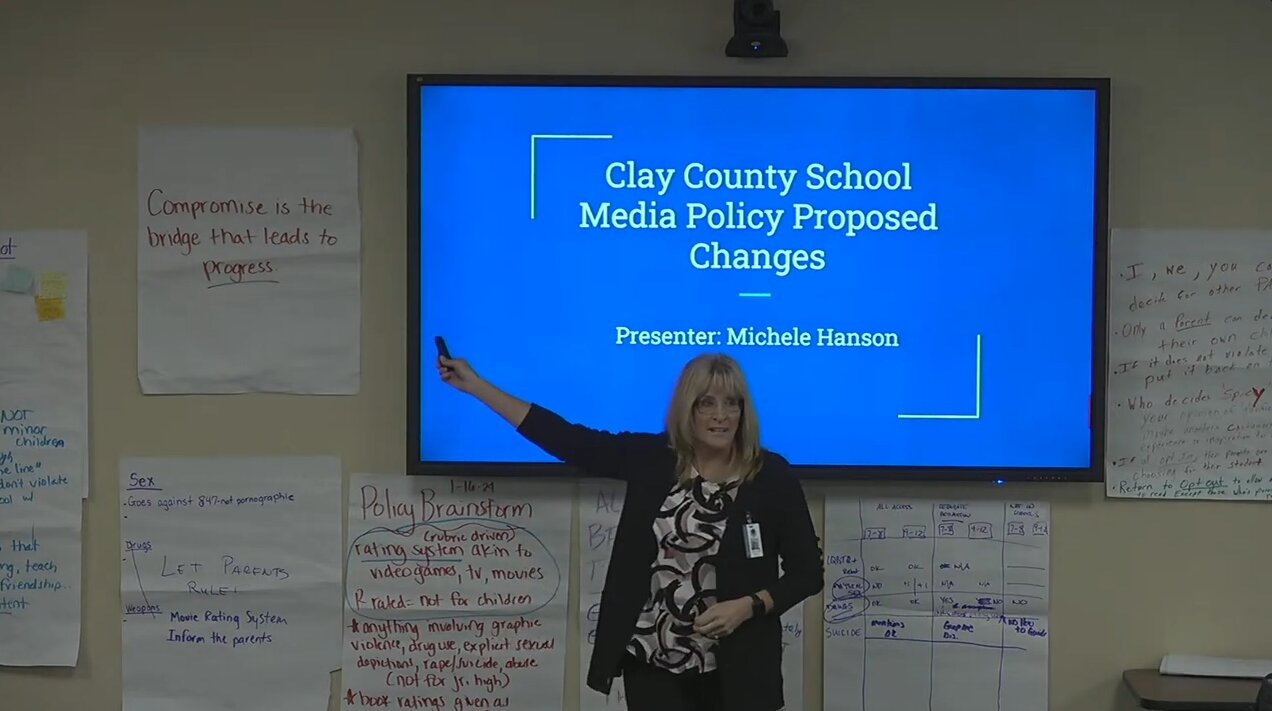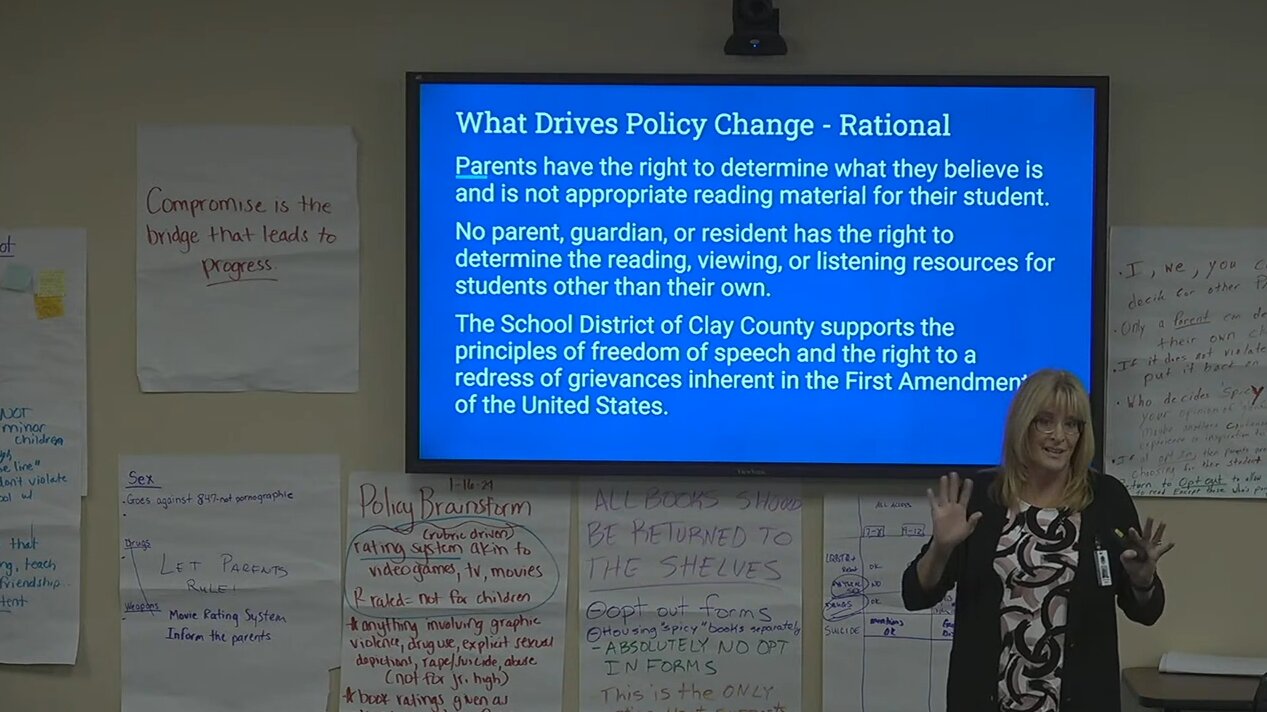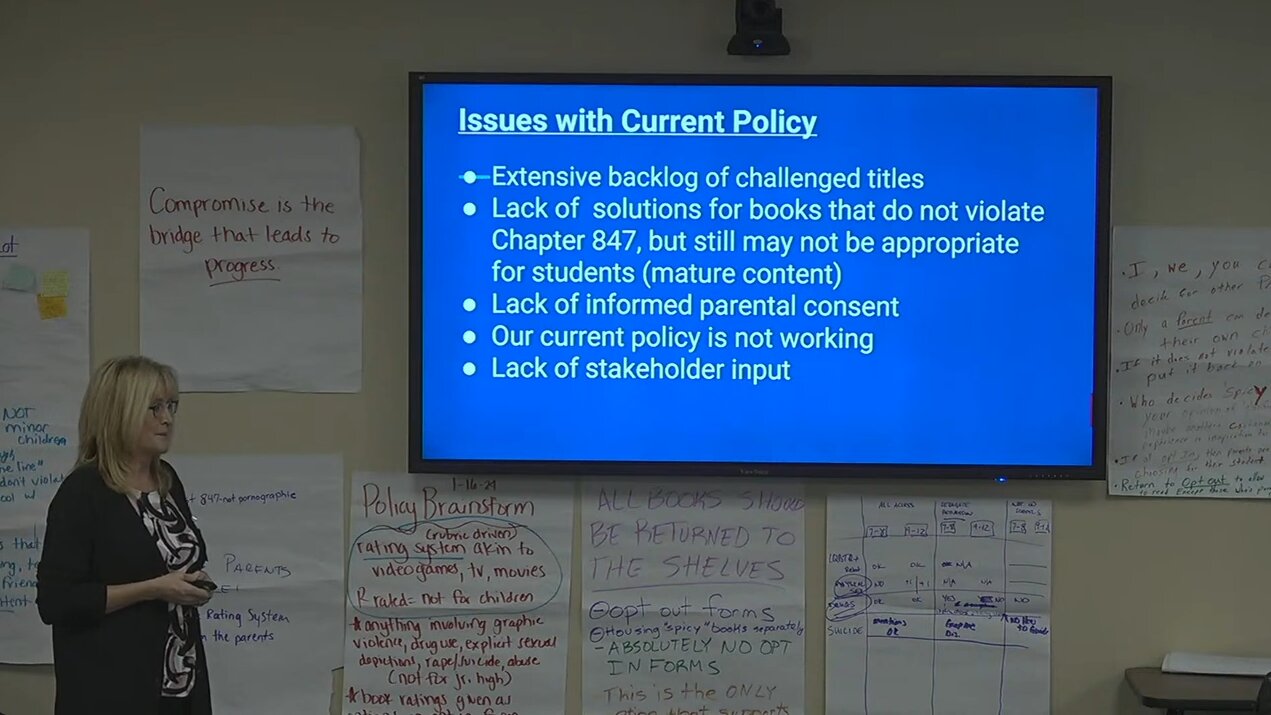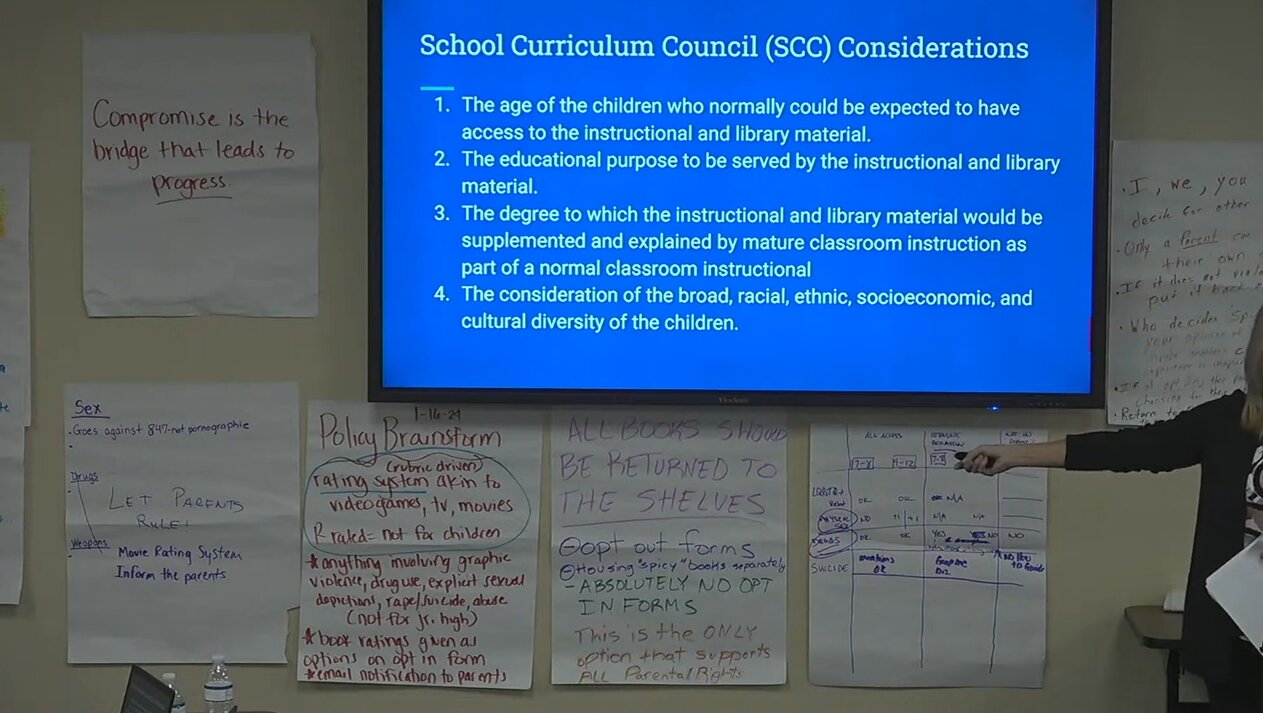First glimpse of a possible new policy for challenging books in Clay County
School Board crafting ‘airtight’ plan to incorporate community, parental input
jack@claytodayonline.com
GREEN COVE SPRINGS – School Board Member Michele Hanson exhibited a possible new media policy for Clay County District Schools, which would provide a new framework for how books can be challenged …
This item is available in full to subscribers.
Attention subscribers
To continue reading, you will need to either log in to your subscriber account, below, or purchase a new subscription.
Please log in to continueDon't have an ID?Print subscribersIf you're a print subscriber, but do not yet have an online account, click here to create one. Non-subscribersClick here to see your options for subscribing. Single day passYou also have the option of purchasing 24 hours of access, for $1.00. Click here to purchase a single day pass. |
First glimpse of a possible new policy for challenging books in Clay County
School Board crafting ‘airtight’ plan to incorporate community, parental input
GREEN COVE SPRINGS – School Board Member Michele Hanson exhibited a possible new media policy for Clay County District Schools, providing a new framework for how books can be challenged and upheld in public school libraries. Her presentation at a recent workshop came in front of several presentation board pages of ideas submitted by teachers, parents and residents collected during the open forum on Jan. 16.
“As a Board, we will never move forward out of our box unless we start to bring diverse personalities and diverse thoughts into meetings,” said Hanson. “We had people from all walks of life.”
She said the participants in the open forum shared three things in common: loving children, appreciating parental rights and an understanding that pornography should not be accessible in public school libraries.
Hanson pointed to a poster that read, “Compromise is the bridge that leads to progress.”
“The best compromise will be what’s best for our district because we cannot make 100% people happy all the time,” she said.
The new policy Hanson presented is subject to change and will likely be amended in subsequent school board meetings and workshops.
As an overview, the new media policy would attempt to decentralize the book-challenging process by delegating decision-making to the principals of the high schools where the challenges originated. An additional goal of the new policy is to incorporate more parental input. Hanson especially wants this new media policy to be “airtight” to protect the school district from legal liability.
The new policy would continue to firmly uphold FS 847, which prohibits books “depicting nudity, sexual conduct, or sexual excitement” without “serious literary, artistic, political, or scientific value for minors.”
However, as discussed during the open forum, some books in circulation do not violate FS 847 but still contain explicit content and objectional material to some parents.
Hanson explained her rationale for decentralizing the book-challenging process:
- To preserve the culture and values of each school. There should not be a “one-size-fits-all” perspective of what is age-appropriate unilaterally enforced onto each school.
- To incorporate more community and parental input in discerning whether objectionable material is age-appropriate.
- To put levees in the process to prevent the administration at the district level from being flooded.
- To make the school district’s policy more accessible and accountable.
- To empower media specialists in determining what to do with books that are not pornographic but contain explicit content and objectional material to some parents.
School Board Attorney Jeremiah Blocker was pleased with the trajectory of the new media policy. Blocker affirmed the importance of enforcing due process so that the school district is not legally liable. Blocker cited the ongoing lawsuit against Escambia County as an example.
“The courts will say, ‘OK. You have a policy. You have a procedure. Are you following those procedures?,’” he said, referring to a hypothetical example.
The board is still working to develop community standards to address books that are not pornographic but contain objectionable material.
“The goal is to put more challenged books back on the shelf,” said Hanson.
“A lot of challenges that come to us have nothing to do with FS 847, and if (those books) go back on the shelf, that would make me incredibly happy,” said School Board Member Mary Bolla.
“We’ve had 171 removed from shelves. Other districts far surpass that. Clay County does not lead (the nation) in removing books,” said Superintendent David Broskie.
In Escambia County, more than 1,600 titles have been removed from its public school libraries to “err on the side of caution.” Escambia is now facing a lawsuit from PEN America, Penguin Random House and various affected authors.
Clay County is, however, a national leader in book challenges. A new policy would likely add roadblocks to inhibit challenges, especially with discussions to limit the number of challenges by an individual to two a month. However, the courts will determine whether the new policy is legal.














